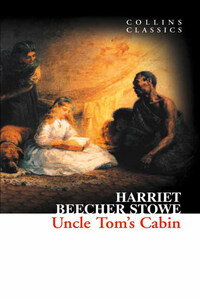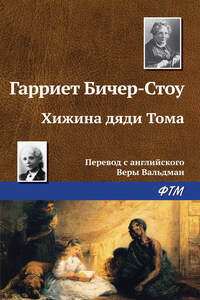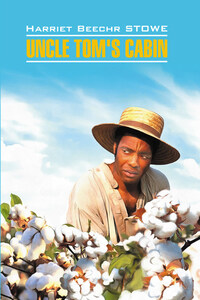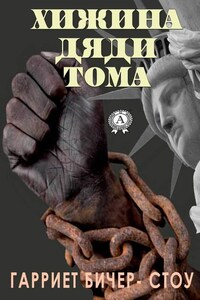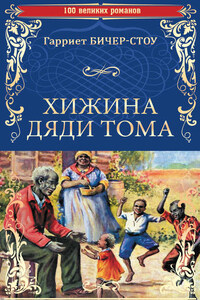Late in the afternoon of a chilly day in February, two gentlemen were sitting alone over their wine, in a well-furnished dining-parlour, in the town of Pâ, in Kentucky. There were no servants present, and the gentlemen, with chairs closely approaching, seemed to be discussing some subject with great earnestness.
For convenienceâ sake, we have said, hitherto, two gentlemen. One of the parties, however, when critically examined, did not seem, strictly speaking, to come under the species. He was a short, thick-set man, with coarse, commonplace features and that swaggering air of pretension which marks a low man who is trying to elbow his way upward in the world. He was much overdressed, in a gaudy vest of many colours, a blue neckerchief, bedropped gaily with yellow spots, and arranged with a flaunting tie, quite in keeping with the general air of the man. His hands, large and coarse, were plentifully bedecked with rings; and he wore a heavy gold watch-chain, with a bundle of seals of portentous size, and a great variety of colours, attached to itâwhich, in the ardour of conversation, he was in the habit of flourishing and jingling with evident satisfaction. His conversation was in free and easy defiance of Murrayâs Grammar, and was garnished at convenient intervals with various profane expressions, which not even the desire to be graphic in our account shall induce us to transcribe.
His companion, Mr. Shelby, had the appearance of a gentleman; and the arrangements of the house, and the general air of the housekeeping, indicated easy, and even opulent, circumstances. As we before stated, the two were in the midst of an earnest conversation.
âThat is the way I should arrange the matter,â said Mr. Shelby.
âI canât make trade that wayâI positively canât, Mr. Shelby,â said the other, holding up a glass of wine between his eye and the light.
âWhy, the fact is, Haley, Tom is an uncommon fellow; he is certainly worth that sum anywhereâsteady, honest, capable, manages my whole farm like a clock.â
âYou mean honest, as niggers go,â said Haley, helping himself to a glass of brandy.
âNo; I mean, really, Tom is a good, steady, sensible, pious fellow. He got religion at a camp meeting, four years ago; and I believe he really did get it. Iâve trusted him, since then, with everything I haveâmoney, house, horsesâand let him come and go round the country; and I always found him true and square in everything.â
âSome folks donât believe there is pious niggers, Shelby,â said Haley, with a candid flourish of his hand, âbut I do. I had a fellow, now, in this yer last lot I took to Orleansââtwas as good as a meetinâ, now, really, to hear that critter pray; and he was quite gentle and quiet like. He fetched me a good sum, too, for I bought him cheap of a man that was âbliged to sell out; so I realised six hundred on him. Yes, I consider religion a valeyable thing in a nigger, when itâs the genuine article, and no mistake.â
âWell, Tomâs got the real article, if ever a fellow had,â rejoined the other. âWhy, last fall, I let him go to Cincinnati alone, to do business for me, and bring home five hundred dollars. âTom,â says I to him, âI trust you, because I think you are a ChristianâI know you wouldnât cheat.â Tom comes back, sure enough; I knew he would. Some low fellows, they say, said to him, âTom, why donât you make tracks for Canada?â âAh, master trusted me, and I couldnâtââthey told me about it. I am sorry to part with Tom, I must say. You ought to let him cover the whole balance of the debt; and you would, Haley, if you had any conscience.â
